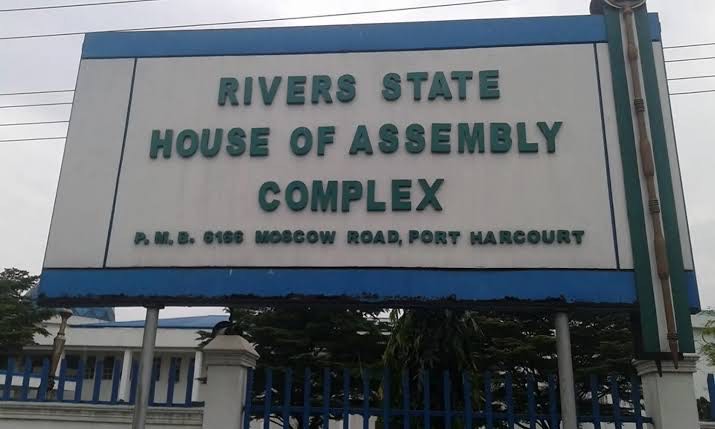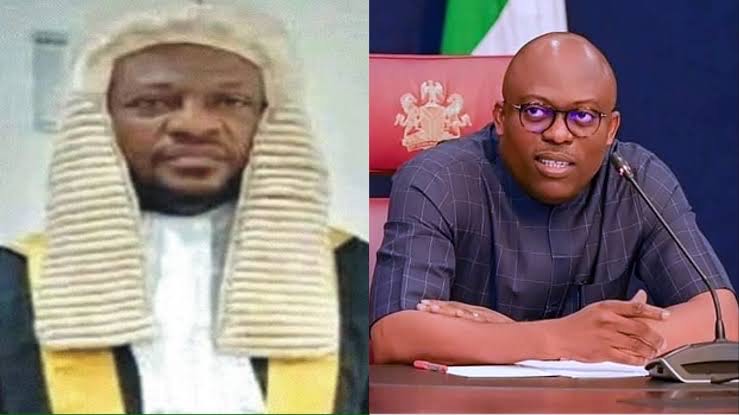By: Nwakaji Peace Martins
The Supreme Court issued a directive yesterday, compelling the governors of the 36 states to submit their defense within seven days in response to the lawsuit filed against them by the Federal Government regarding alleged misconduct in the management of local government affairs. A seven-member panel of the apex court, headed by Justice Garba Lawal, also granted the Attorney General of the Federation a two-day window to file his rebuttal to the governors’ defense.
Furthermore, a hearing on the lawsuit, which seeks full autonomy for the 774 local government areas, has been scheduled for June 13. The Supreme Court also mandated that the eight states, namely Borno, Kano, Kogi, Niger, Ogun, Osun, Oyo, and Sokoto, which were absent during the court proceedings, be duly served with a fresh hearing notice.

Justice Garba Lawal set the date following a ruling on an application for an expedited process presented by the Attorney General of the Federation and Minister of Justice, Lateef Fgebemi. Lawal emphasized that the court’s decision was based on the urgent national nature of the case and the lack of objection from the attorneys general of the various states.
The Attorney General specifically stated that the application was aimed at allowing adequate time for all parties to file their legal documents and exchange the same. The lawsuit, identified as SC/CV/343/2024, was initiated by the Attorney General of the Federation to request an order from the apex court preventing state governors from unilaterally, arbitrarily, and unlawfully dissolving democratically elected local government officials.
Fagbemi filed the lawsuit against the governors to advocate for full autonomy for local governments as the third tier of government. He asserted that the lawsuit was a deliberate effort to protect local governments from gross abuse by state governors.
The lawsuit is based on 27 grounds, including the premise that the Nigerian Federation was established by the 1999 Constitution with the President as the head of the federal executive arm of the Federation, who is obligated to uphold and enforce the provisions of the Constitution.

The originating summons, personally signed by Fagbemi, was scheduled for a hearing on May 30. He requested the court to authorize the direct transfer of funds allocated to local governments from the federation account to them in accordance with the constitutional provisions, as opposed to the alleged unlawful joint accounts created by governors.
Additionally, he sought an order to prevent governors from appointing caretaker committees to oversee local government affairs, in contrast to the constitutionally recognized and guaranteed democratically elected system.
Fagbemi further applied for an injunction to prohibit governors, their representatives, and associates from accessing, utilizing, or interfering with funds released from the federation account intended for the benefit of local governments in the absence of a democratically elected local government system.
The Attorney General urged the Supreme Court to invoke sections 1, 4, 5, 7, and 14 of the Constitution to declare that state governors and state Houses of Assembly are obligated to establish a democratic system at the third tier of government.
The lawsuit also seeks the intervention of the apex court to affirm that governors cannot legally dissolve democratically elected local government councils. In a 13-paragraph affidavit supporting the originating summons, deposed by Kelechi Ohaeri from the AGF’s office, Fagbemi stated that the lawsuit was filed under the original jurisdiction of the Supreme Court on behalf of the federal government.
The deponent argued that the local government system recognized by the constitution entails a democratically elected local government council and that the funds due to local government councils from the federation account should be disbursed to the local government system recognized by the constitution.

The plea also includes assertions that the constitution recognizes federal, state, and local governments as three tiers of government and that these tiers derive their operational funds from the Federation Account as stipulated by the Constitution.
As per the constitutional provisions, a democratically elected local government system must be established, with no alternative systems of governance at the local government level provided for in the Constitution.
In light of the constitutional provisions, governors have failed to implement a democratically elected local government system, even without a declared state of emergency that would justify the suspension of democratic institutions in the state.
The failure of governors to institute a democratically elected local government system is deemed a deliberate subversion of the 1999 Constitution, which they and the President have sworn to uphold. Fagbemi also highlighted that attempts to compel governors to comply with the requirements of the 1999 Constitution regarding the establishment of a democratically elected local government system have been unsuccessful.
The Attorney General asserted that the federal government’s continued allocation of funds from the Federation Account to governors for non-existent democratically elected local governments undermines the integrity of the 1999 Constitution.
He contended that in light of the violations of the 1999 Constitution, the federal government is not obligated under Section 162 of the Constitution to remit any state funds allocated to local governments in the absence of a democratically elected local government system.

































